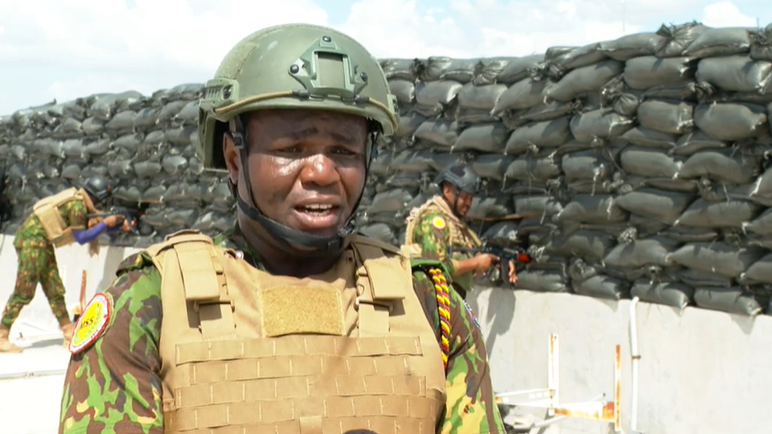 MSS spokesperson Jack Ombaka.
MSS spokesperson Jack Ombaka.
The Multinational Security Support (MSS) Mission in Haiti says it has made significant progress in restoring order in the gang-ravaged Caribbean nation since its deployment last year.
The first contingent of the UN-backed force arrived on June 25, 2024, following the mission’s approval by the United Nations Security Council on 2 October 2023.
The operation, led by Kenya in coordination with the Haitian National Police (HNP), aims to curb the rampant gang violence and civil strife that has gripped the country since 2018.
Haiti’s governance crisis deepened after the assassination of President Jovenel Moïse in July 2021, leaving a power vacuum that fuelled further instability.
Kenya currently has about 600 police officers serving under the mission.
Updating the media on September 18, MSS spokesperson Jack Ombaka said the force had strengthened its operations by training recruits in Port-au-Prince, the epicentre of the gang crisis.
“For the first time, the Haitian National Police service was able to train approximately 730 new recruits that passed out last year and are now in the field fighting the gangs,” Ombaka said.
He added that the HNP Academy, which also serves as one of the MSS forward operating bases, is this week admitting a fresh intake of trainees.
“We are involved in making sure that the area around the academy is well guarded and they don’t get threats from outside,” he said.
According to Ombaka, the mission has also retaken strategic facilities, including the HNP director general’s headquarters, which had been seized by gangs.
He said these advances have boosted local confidence in the MSS’s ability to help rid the country of armed groups.
“When we came here, the Haitians were very sceptical, they were not even sure that we were going to stay here even for one minute, but fortunately we were able to hold the ground and repel the gangs,” he said.
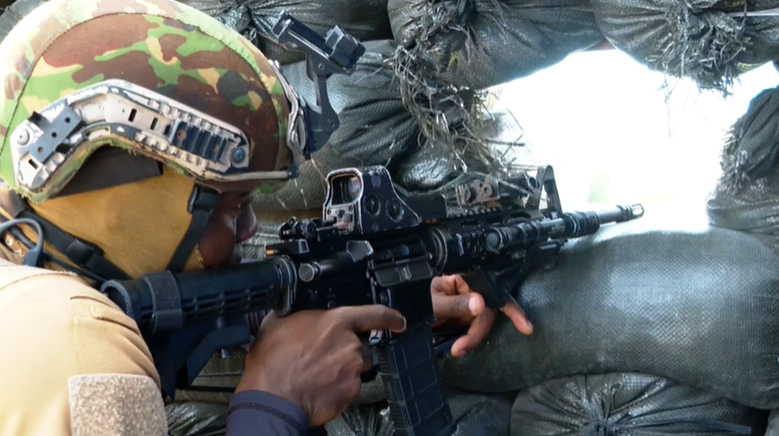 An MSS officer keeps guard at a critical installation in Haiti. /MSS
An MSS officer keeps guard at a critical installation in Haiti. /MSSThe spokesperson added that the mission has embarked on renovation works at the HNP headquarters and other critical installations, while also reopening key highways.
“The roads are opening, those that had been blocked are being unblocked, and this is due to the resilience of the police officers, especially from Kenya, that have been able to go out of their way to make sure that these critical infrastructures are restored,” Ombaka noted.
Haiti’s political vacuum has allowed gang warfare and violent crime to flourish.
After Moïse’s death, Ariel Henry assumed power, but his mandate expired in early 2022.
He postponed elections, governed without constitutional legitimacy, and repeatedly appealed for international intervention as the violence escalated.
Since 2021, the HNP has lost about 100 officers in the line of duty, and its ranks have shrunk by more than 7,000.
By the end of 2023, just 9,000 police remained active to serve a population of more than 11 million.
Despite the MSS presence, violence remains widespread.
More than 4,000 people have been killed since the mission’s deployment, including members of the Kenyan contingent.
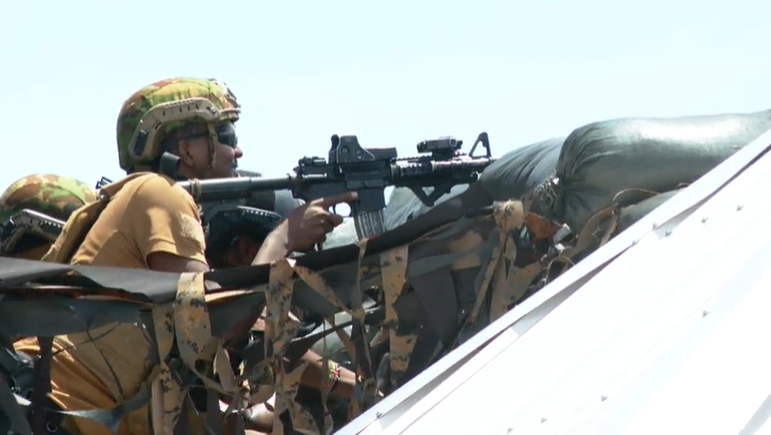 An MSS officer keeps guard at a critical installation in Haiti. /MSS
An MSS officer keeps guard at a critical installation in Haiti. /MSS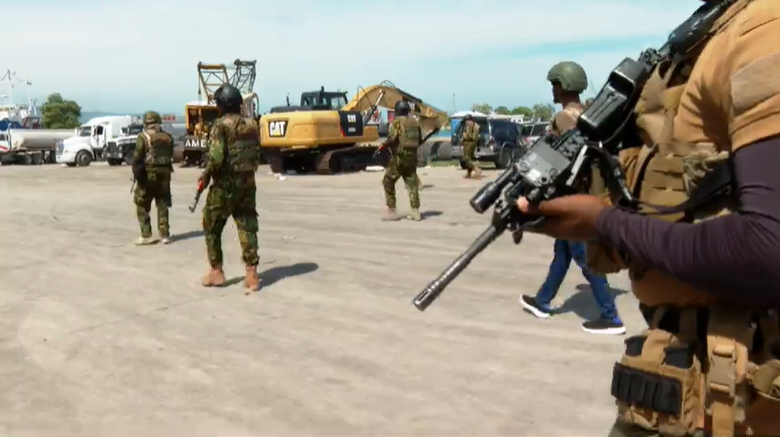
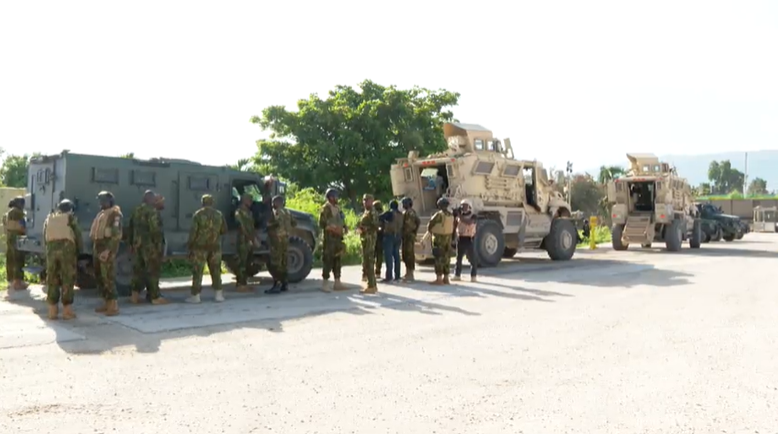
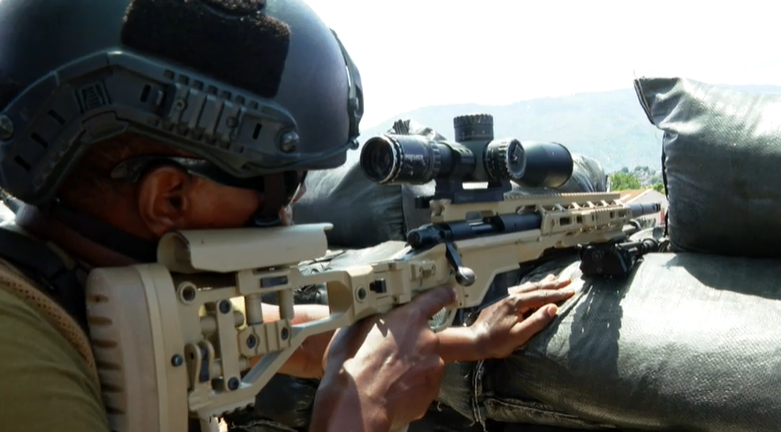
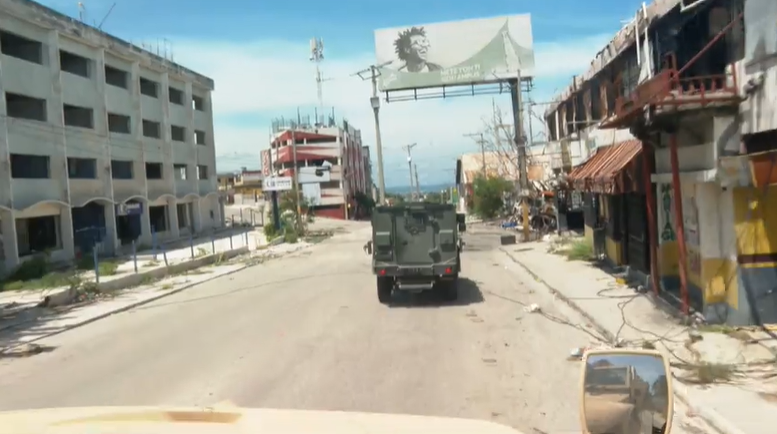 MSS officers patrol a street in Haiti. /MSS
MSS officers patrol a street in Haiti. /MSS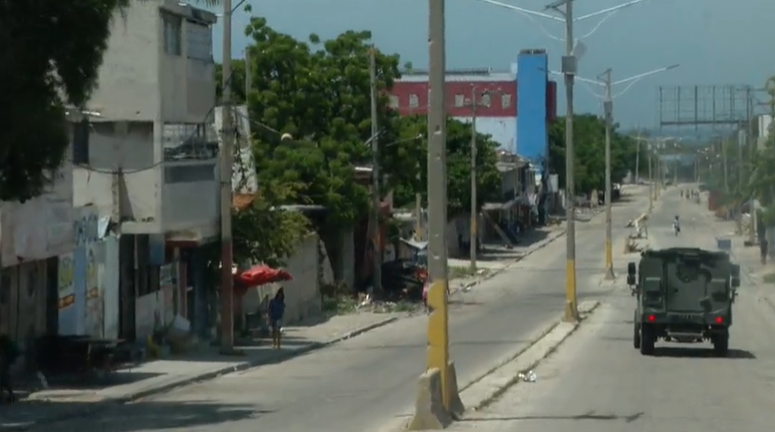
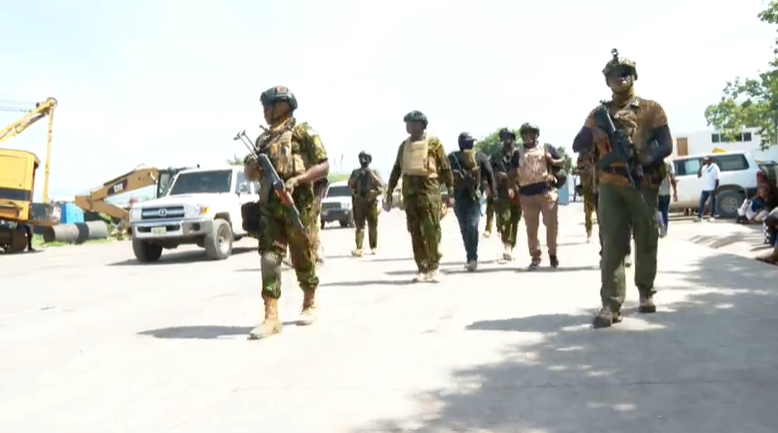
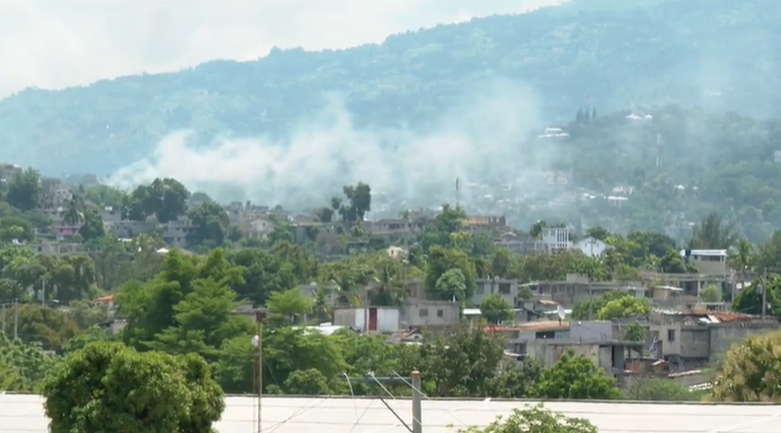 A view of the capital Port-au-Prince in Haiti. /MSS
A view of the capital Port-au-Prince in Haiti. /MSS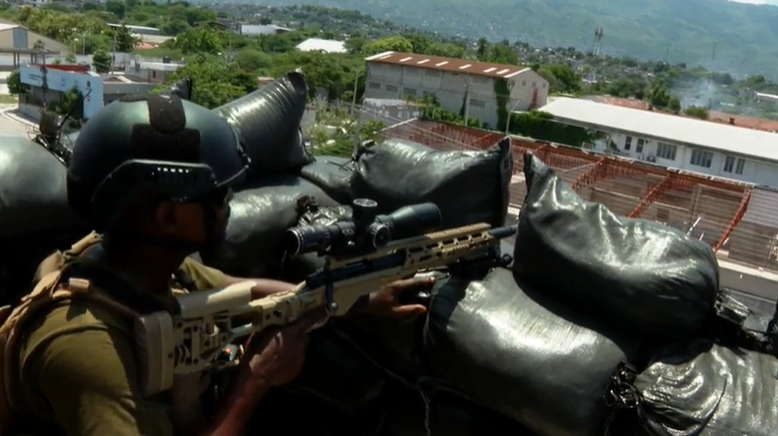 MSS officer keeps guard at a critical installation in Haiti. /MSS
MSS officer keeps guard at a critical installation in Haiti. /MSS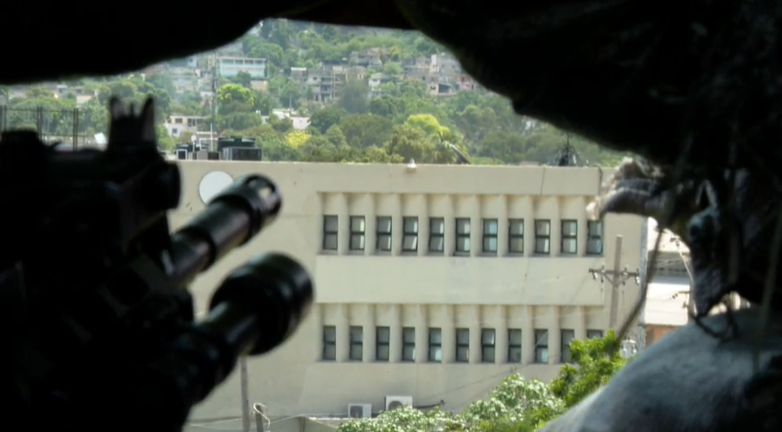
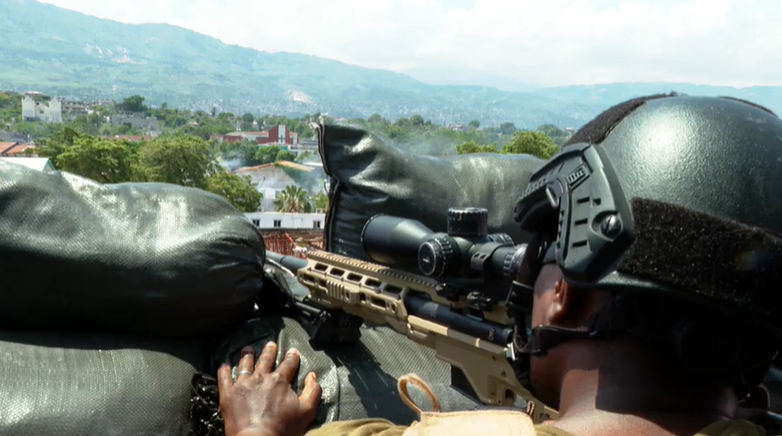
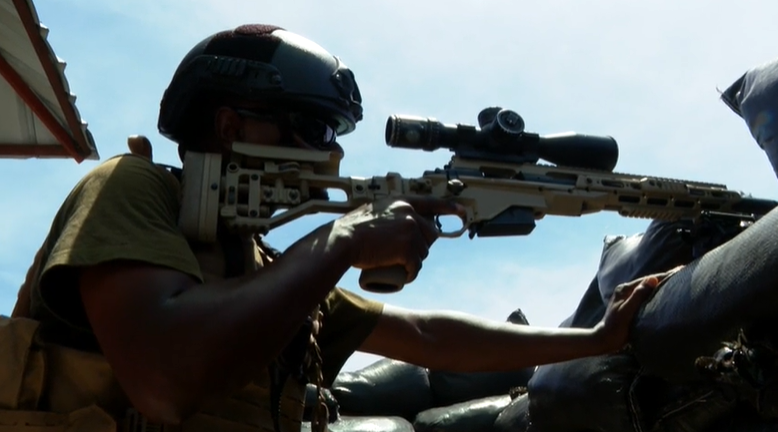
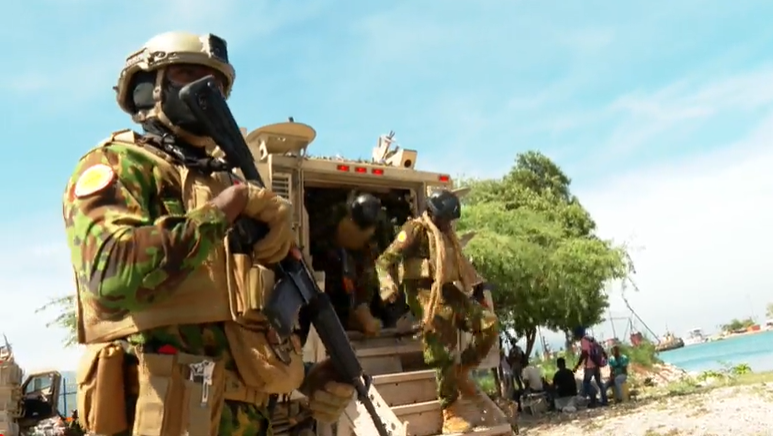 MSS officers arrive to keep guard at a port in Haiti. /MSS
MSS officers arrive to keep guard at a port in Haiti. /MSS
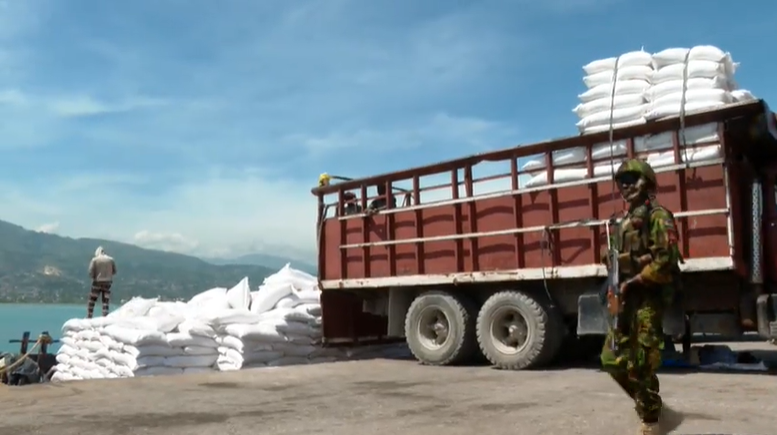 MSS officers keep guard at a port in Haiti. /MSS
MSS officers keep guard at a port in Haiti. /MSS
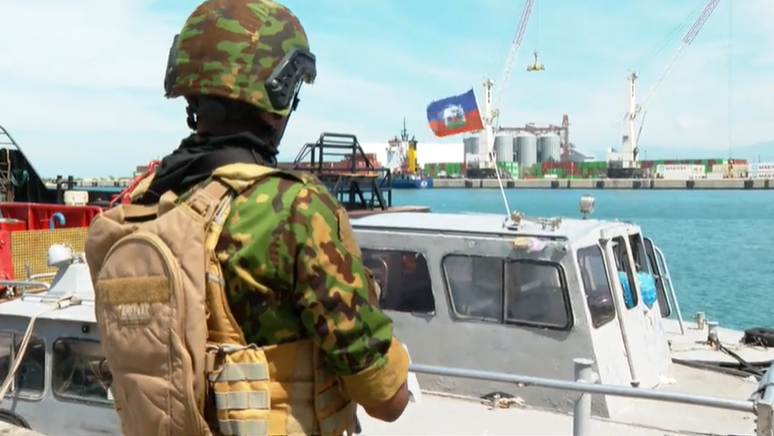
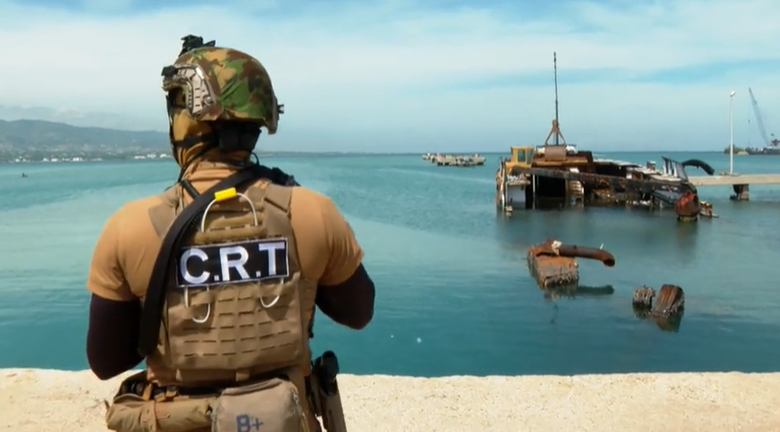
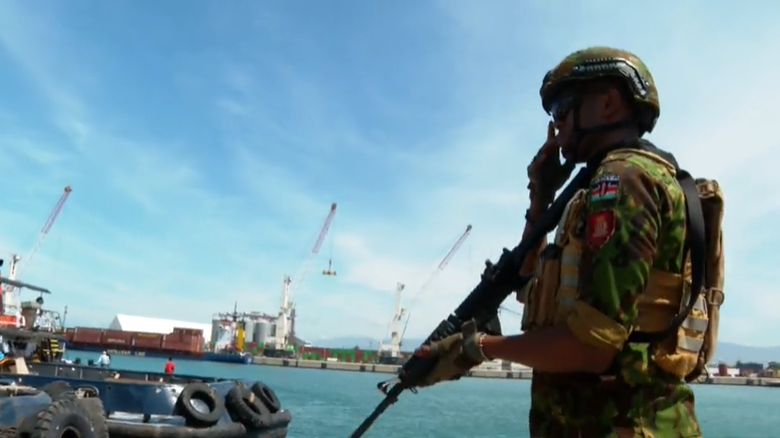
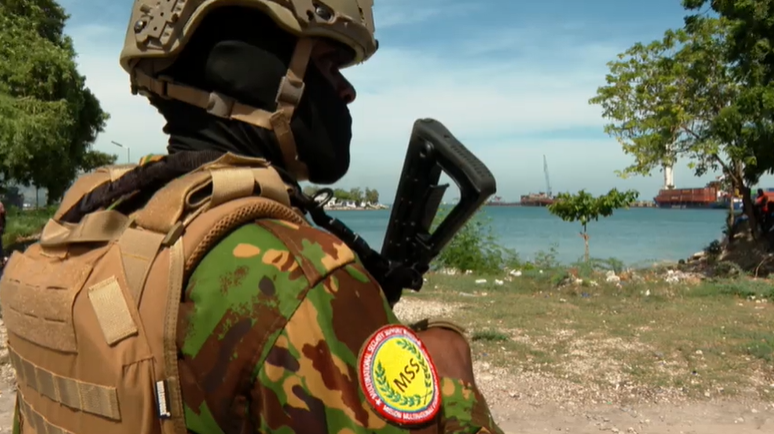 MSS officers keeps guard at a port in Haiti. /MSS
MSS officers keeps guard at a port in Haiti. /MSS





![[PHOTOS] Group of elderly women stage protests at Milimani over missing files](/_next/image?url=https%3A%2F%2Fcdn.radioafrica.digital%2Fimage%2F2025%2F09%2F38d12e22-b2e0-4b3f-a694-d229cdd749e3.jpg&w=3840&q=100)





